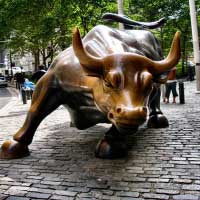In addition to sevenOdouble's explanation... Once
Post# of 16816
In addition to sevenOdouble's explanation...
Once a company initiates a R/S the shares you own are frozen for a number of days (usually about 20). This means you cannot sell the shares. However, the stock can still trade with new buyers so your shares can be impacted during this time and you would have no recourse until you can begin trading your shares again.
What usually happens with a R/S is that the Outstanding Share count and Float are decreased in the specified ratio of the R/S. However, the problem is that the company often leaves the Authorized Share count at pre-R/S levels. Therefore, as sevenOdouble said the company can dilute again with the difference between the O/S and A/S. To minimize the impact on the shareholders, when doing a R/S a company could adjust the Authorized Share count to match the R/S ratio, thus eliminating the possibility of dilution (unless they raise the A/S again), however, companies in the OTC markets rarely do this, which is why a R/S is always looked upon as a bad thing for investors.
The typical scenario for a R/S impact on the PPS is an immediate increase and then a steady decline back to the pre-R/S price (but the investor typically has less shares when it gets back to the PPS it was at pre-R/S).
In my opinion, Baron Capital will not do a R/S as there is no need for a R/S. The finanicals showed the company is on the right track and hopefully as they begin liquidating their assets the talk regarding a A/S increase or a R/S will cease as the company should have sufficient funds to maintain operations.
 (0)
(0) (0)
(0)Baron Capital Enterprise, INC. (BCAP) Stock Research Links

Quick Links: MVP Board - OTC Stock Contest - Big Board Stock Contest - Portfolio Challenge - Blog - iStockify
